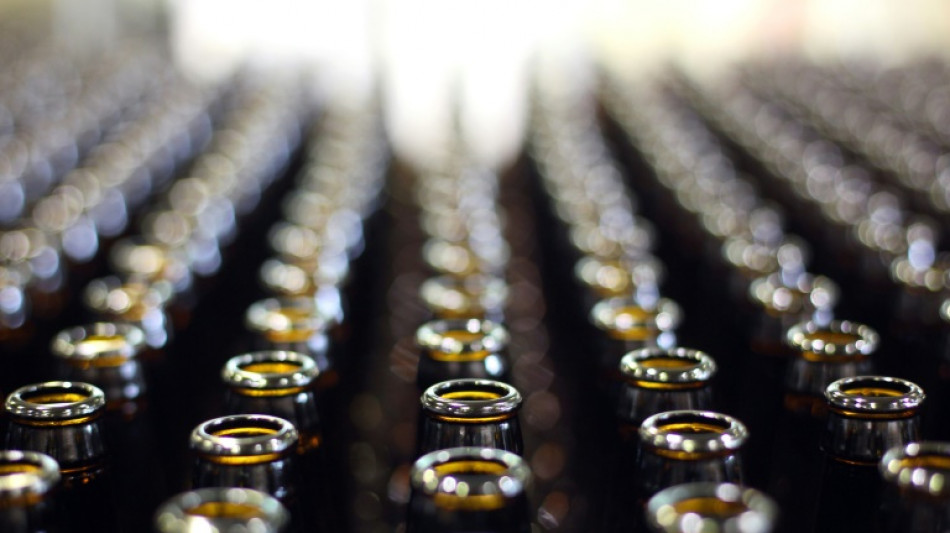
RBGPF
0.1000


Drinks including water, soda, beer and wine sold in glass bottles contain more microplastics than those in plastic bottles, according to a surprising study released by France's food safety agency Friday.
Researchers have detected thee tiny, mostly invisible pieces of plastic throughout the world, from in the air we breathe to the food we eat, as well as riddled throughout human bodies.
There is still no direct evidence that this preponderance of plastic is harmful to human health, but a burgeoning field of research is aiming to measure its spread.
Guillaume Duflos, research director at French food safety agency ANSES, told AFP the team sought to "investigate the quantity of microplastics in different types of drinks sold in France and examine the impact different containers can have".
The researchers found an average of around 100 microplastic particles per litre in glass bottles of soft drinks, lemonade, iced tea and beer. That was five to 50 times higher than the rate detected in plastic bottles or metal cans.
"We expected the opposite result," PhD student Iseline Chaib, who conducted the research, told AFP.
"We then noticed that in the glass, the particles emerging from the samples were the same shape, colour and polymer composition -- so therefore the same plastic -- as the paint on the outside of the caps that seal the glass bottles," she said.
The paint on the caps also had "tiny scratches, invisible to the naked eye, probably due to friction between the caps when there were stored," the agency said in a statement.
This could then "release particles onto the surface of the caps", it added.
- Wine fine -
For water, both flat and sparkling, the amount of microplastic was relatively low in all cases, ranging from 4.5 particles per litre in glass bottles to 1.6 particles in plastic.
Wine also contained few microplastics -- even glass bottles with caps. Duflos said the reason for this discrepancy "remains to be explained".
Soft drinks however contained around 30 microplastics per litre, lemonade 40 and beer around 60.
Because there is no reference level for a potentially toxic amount of microplastics, it was not possible to say whether these figures represent a health risk, ANSES said.
But drink manufacturers could easily reduce the amount of microplastics shed by bottle caps, it added.
The agency tested a cleaning method involving blowing the caps with air, then rinsing them with water and alcohol, which reduced contamination by 60 percent.
The study released by ANSES was published online in the Journal of Food Composition and Analysis last month.
Y.Su--ThChM